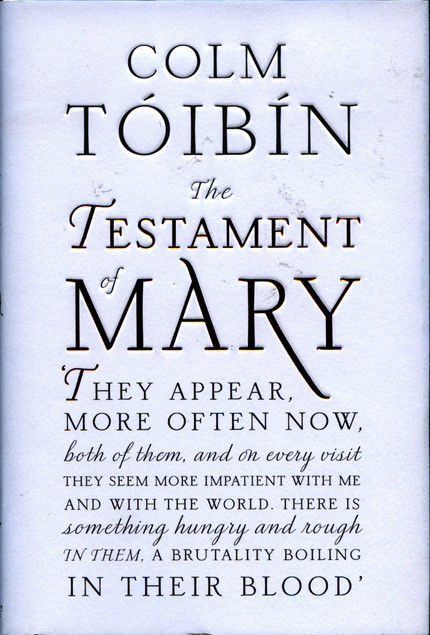 The Testament of Mary, Colm Tóibín
The Testament of Mary, Colm Tóibín
The reviews for The Testament of Mary are pretty much the spread I would expect — some people viewing it as a literary work, some as deliberately heretical trash, some seeing it as written just to shock, etc. I read it for more or less the same reasons I read Philip Pullman’s The Good Man Jesus and the Scoundrel Christ: because I’m curious, because I’m okay with questioning things that I have or have had faith in. (Ask me which on any given day and I’ll be able to give you specifics.)
I think it’s an honest and earnest attempt to think about Mary as a person, not as the sort of demi-goddess we’ve made of her. To think of her as a woman, a mother, and as a mortal, as someone of quiet faith and love for her son. Tóibín’s Mary isn’t a believer, really; she doesn’t see what Jesus does as proof of miracles, she’s not exactly sceptical but is concerned about what is done to Lazarus, she doesn’t seem to believe he’s the son of God. She resists the urge to find meaning in what’s done to him. She’s even human enough to leave the site of the crucifixion to save her own life.
The book is her telling her story, quietly, with certainty, knowing it won’t survive or rival the story Jesus’ followers want to tell — i.e. what we know as the Gospels — but because she needs to voice her truth. Parts of the story didn’t really work well for me, the semi-imprisonment she has where she’s looked after by Jesus’ disciples, for example, but overall I found it moving — in a quiet, understated way. These are the emotions of a woman who has lost her son, quiet and traumatised, not the mother of a martyr, a saviour. Which is fine and worthy, from my point of view, but I think other people object to that.
(Particularly, people keep saying that Tóibín is writing Mary using modern psychology. That’s… somewhat true, but I think people in times past still had the same feelings — depression, PTSD, anxiety, schizophrenia, etc — and just understood them differently. Mary never talks about Freud or anything, so I think that’s not really an issue.)
It’s a very slim book, and I’m not entirely sure why it was shortlisted for the Man Booker: it’s not that powerful a story, though it has its moments. But it is worth a read if the idea interests you — it certainly won’t take too long.

Can I borrow it?
Yes, okay.
I find Toibin leaves you wanting more. I’ve not read this one yet so I’m glad for your review. It has actually sparked my interest to pick it up.
I hope you enjoy it! I haven’t read anything else by him, yet.
Thanks. I’m reading his first novel called, The South, a worthy read. Well-written, flows nicely, compelling plot, interesting characters.